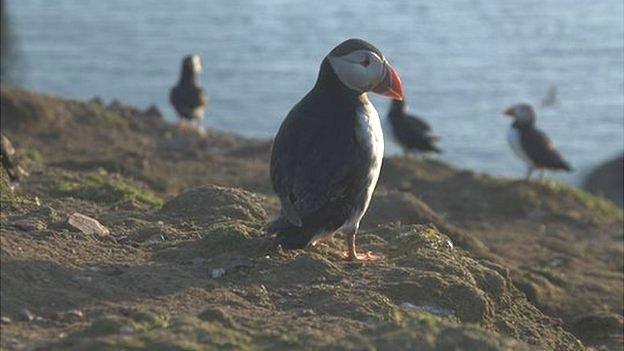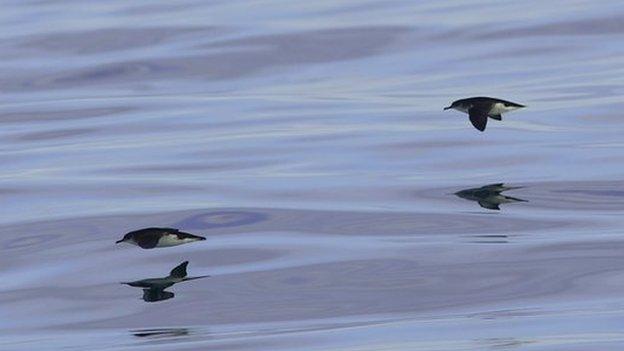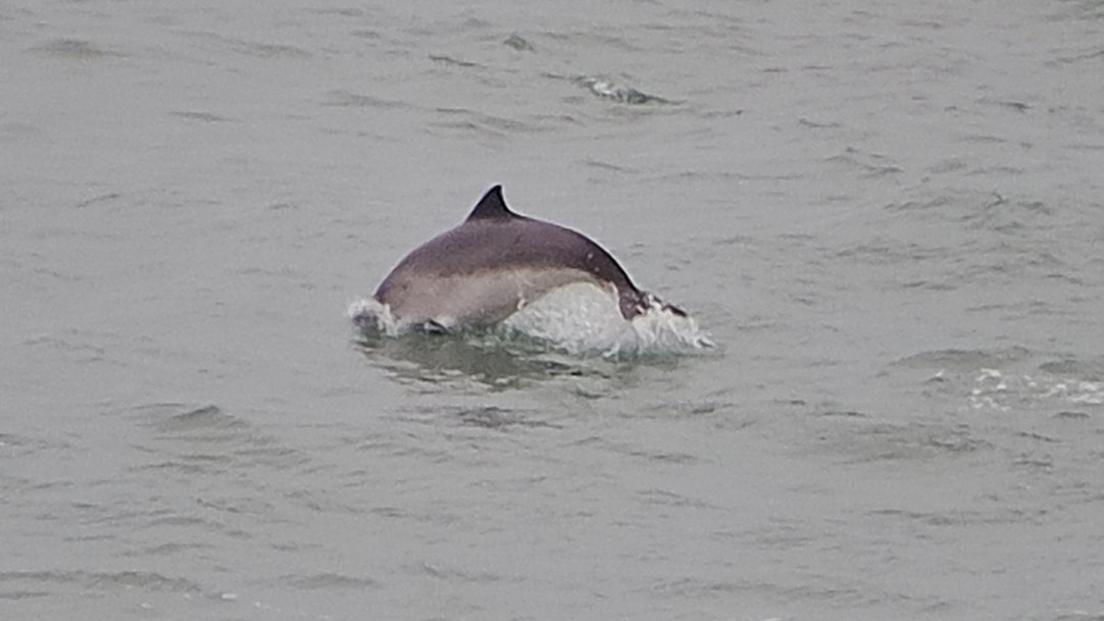Skomer Island: Funding fears for 40-year bird research
- Published
The guillemot population on Skomer has been studied for 40 years
There are concerns about the future funding for research on one of Wales' most important havens for seabirds.
Natural Resources Wales (NRW) has cut £12,000 funding for a long-term study of Skomer Island's 50,000 guillemots.
A university is continuing to fund this summer's programme but there has been criticism that wider bird research in its place will be less comprehensive.
NRW said it had to take "tough decisions" but all the island's environment would be monitored.
Skomer, off the Pembrokeshire coast, is popular with 250 visitors a day in the summer season, with a chance to spot razorbills, guillemots and puffins.
But there are fewer of them this year as the bird population was affected by the winter storms.
Prof Tim Birkhead, a zoologist at Sheffield University, has been monitoring guillemots on the south of Skomer for 40 years.
"Guillemots are one of Britain's most abundant seabirds but they have been through changing times," he says.
"On Skomer in the 1930s there were thought to be around 100,000 pairs here but now there are around 25,000.
"But they are still very vulnerable to oiling incidents or in the case of this spring to climate change.
"With the storms last winter, we know there was massive mortality - 40,000 dead seabirds were picked up, around half of those guillemots.
'Government cutbacks'
"We know a lot of our birds died, as we had three times more recoveries from Skomer-ringed birds than over the last 40 years."
Other seabirds are monitored too, but not with the same detail as those given to guillemots.
Prof Birkhead said: "We monitor the survival rate of adults, how many young birds survive to breed, how old they are when they breed and the food supply the chicks are fed when growing up."
He is worried that a more broad-brush approach to research will not bring the detailed results which can tell conservationists how well the birds are recovering.
Prof Tim Birkhead explains the winter storms' impact on Skomer's guillemots
"This is too important to do in some sloppy, tick-box sort of way - it has to be professional and crucially overseen by someone with scientific knowledge.
"There's absolutely no point doing it if it's done wrong."
Mike Evans of NRW has defended the cutbacks.
"At a time of government cutbacks we have to take some very tough decisions," he says.
"What we've tried to do with our monitoring on Skomer is to make sure we're doing every element of the environment that we can rather than concentrating on a single species.
"We're continuing to monitor 12 species of birds which are very special to the island but we're also looking at the underwater environment and have a big programme of monitoring to make sure the sea is in a good state to support the bird population."
- Published25 February 2014

- Published27 April 2014

- Published6 January 2013
